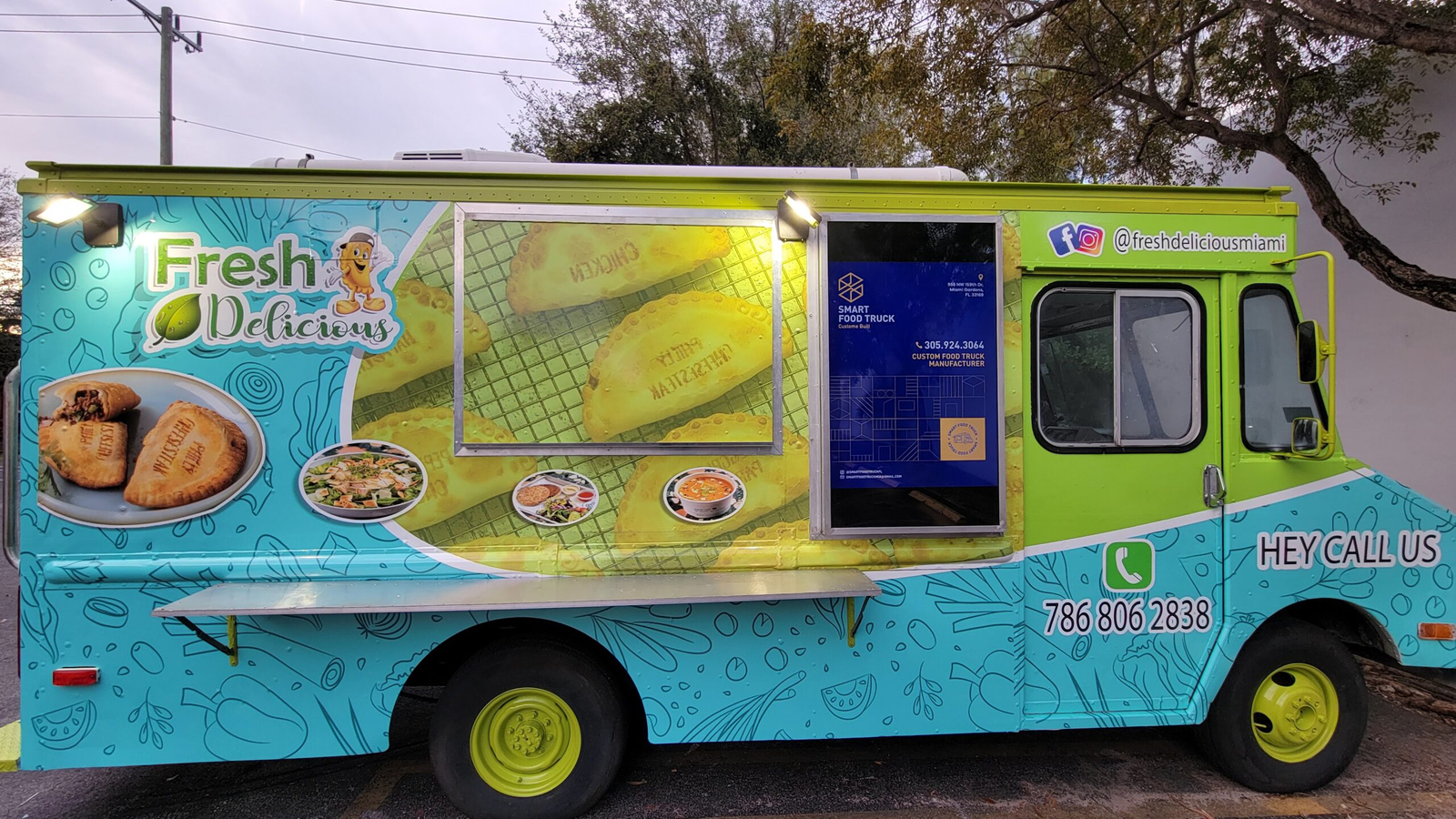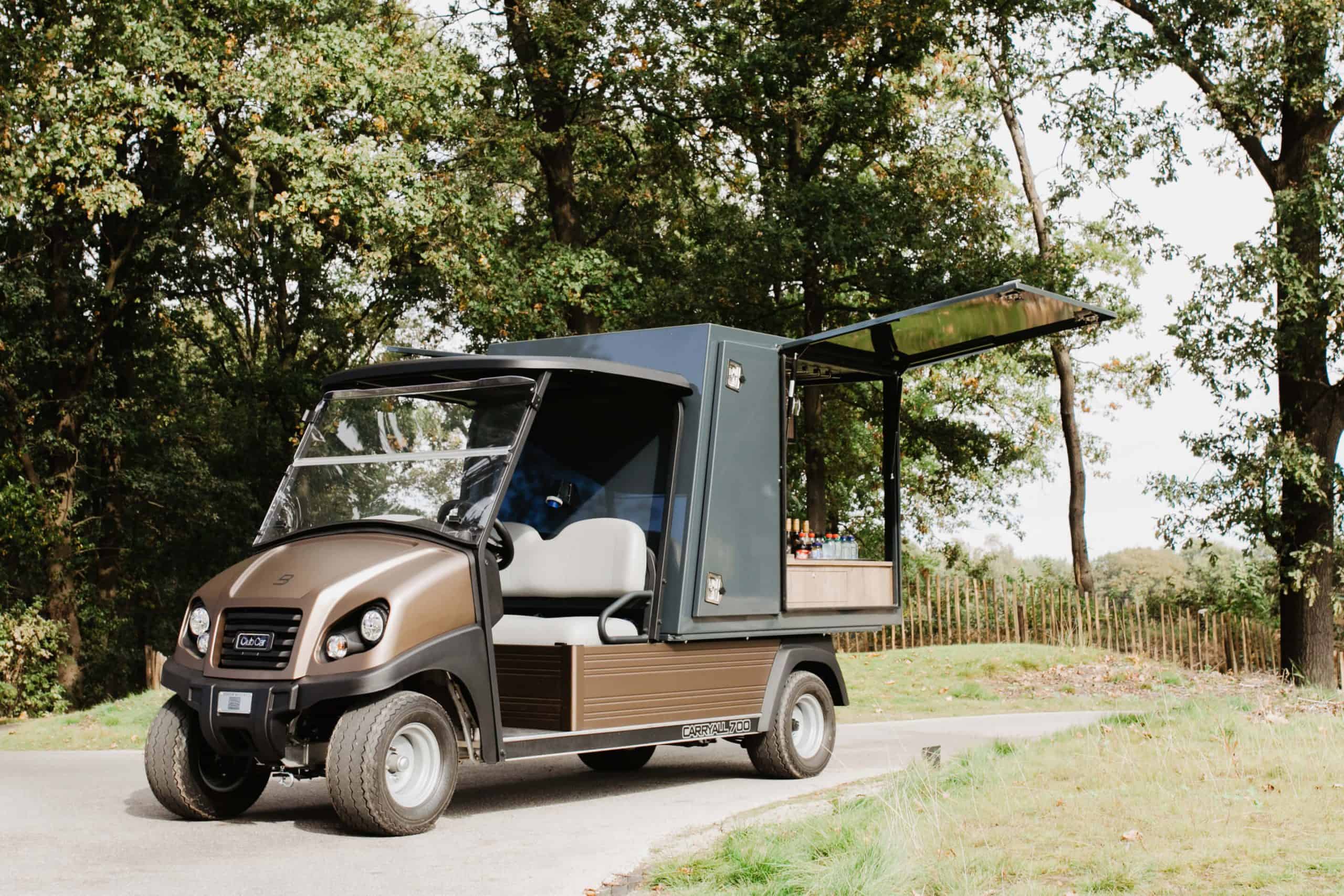How Much Is It To Rent A Food Truck? Your Comprehensive Guide pickup.truckstrend.com
The aroma of sizzling street food, the vibrant branding, and the unique culinary experience – food trucks have exploded in popularity, transforming everything from corporate lunches to elaborate weddings. They offer a flexible, exciting, and often more personal alternative to traditional catering or a low-overhead entry point for aspiring restaurateurs. But before you envision your custom menu rolling down the street, a fundamental question arises: How much does it cost to rent a food truck?
The answer, like a well-crafted gourmet burger, is complex and multi-layered. It’s not a single fixed price, but rather a spectrum influenced by numerous variables. Understanding these factors is crucial for budgeting, planning, and ultimately, ensuring your food truck rental experience is a delicious success, whether you’re organizing a one-off event or testing a new culinary concept. This comprehensive guide will break down all the costs, considerations, and actionable insights you need to navigate the world of food truck rentals.
How Much Is It To Rent A Food Truck? Your Comprehensive Guide
Understanding the Variables: What Influences Food Truck Rental Costs?
The cost of renting a food truck isn’t static; it’s a dynamic figure shaped by a confluence of factors. Grasping these variables is the first step in accurately estimating your expenses.
- Duration of Rental: This is perhaps the most significant cost driver. Are you looking for a few hours, a full day, a weekend, a week, or even a month? Short-term rentals (hourly/daily) often have higher per-unit costs but lower overall totals, while longer-term rentals (weekly/monthly) usually offer discounted daily rates. Event-specific rentals might involve a flat fee or a minimum spend.
- Type of Rental (Dry vs. Wet): This distinction is critical and affects costs dramatically.
- Dry Rental: You rent just the truck – an empty shell with commercial kitchen equipment. You are responsible for staffing, food, supplies, permits, and often, insurance. This is generally cheaper upfront but requires more logistical effort on your part.
- Wet Rental: You rent the entire package – the truck, professional staff (chefs, servers), the food, and often, the necessary permits and insurance are handled by the rental company. This is more expensive but offers a hassle-free, turnkey solution.

- Location, Location, Location: Rental prices can vary significantly based on geographic location. Major metropolitan areas (e.g., New York City, Los Angeles, San Francisco) with high demand and operating costs will naturally command higher rental fees than smaller towns or rural areas.
- Seasonality and Demand: Peak event seasons (spring and summer for weddings, holidays, major festivals) drive up demand and, consequently, prices. Booking during off-peak times or weekdays might offer opportunities for discounts.
- Type and Size of the Food Truck: A basic concession trailer with a simple menu (like hot dogs or ice cream) will be less expensive than a fully equipped, custom-built gourmet kitchen on wheels capable of complex menus. Larger trucks with specialized equipment (e.g., brick ovens for pizza, elaborate coffee machines) will also cost more.
- Menu and Ingredients (for Wet Rentals): For wet rentals, the complexity and cost of the menu directly impact the price. Premium ingredients, specialized dietary options, and multi-course offerings will naturally increase the per-person or minimum spend cost.
- Staffing Requirements (for Wet Rentals): The number of staff needed, their experience level, and the duration of service will contribute to the overall cost of a wet rental.
- Additional Inclusions and Services: Some rental companies offer add-ons like custom branding/wraps, specific serving ware, generators, additional propane tanks, delivery/pickup services, and even marketing support. These will add to the total.
- Mileage/Travel Distance: If the truck needs to travel a significant distance to your event location, expect to incur mileage or transportation fees.

Types of Food Truck Rental Scenarios & Their Costs

Food trucks are incredibly versatile, fitting into various scenarios, each with its own cost structure.
- Event Catering (Weddings, Corporate Events, Private Parties): This is the most common use.
- Cost Structure: Typically a "minimum spend" requirement (e.g., $750 – $2,500+ for 2-3 hours of service) or a "per-person" rate ($15 – $45+ per head, depending on menu complexity and duration). The minimum spend ensures profitability for the truck even if guest count is low. Additional hours are often charged hourly.
- Considerations: Menu customization, dietary restrictions, serving window length, guest count.
- Short-Term Business Use (Pop-ups, Market Stalls, Brand Activations): For entrepreneurs testing a concept or businesses doing temporary promotions.
- Cost Structure: Usually dry rental daily, weekend, or weekly rates. Daily rates are higher, weekly rates offer better value.
- Considerations: You’ll need your own permits, food, staff, and insurance. Ideal for proving a concept before investing in ownership.
- Long-Term Business Lease (Aspiring Entrepreneurs): For those looking to operate a food truck business without the massive upfront investment of purchasing.
- Cost Structure: Monthly dry rental rates, often with options for longer lease terms or even rent-to-own programs.
- Considerations: Comprehensive insurance, maintenance responsibilities, permit acquisition, and often a significant security deposit.
- Film/TV Production & Marketing Stunts: Renting a truck for its aesthetic or functional use as a prop or mobile billboard.
- Cost Structure: Hourly or daily dry rental rates, sometimes with specific appearance fees or customization charges.
- Considerations: Branding, specific aesthetic requirements, potential for long hours on set.
Breaking Down the Numbers: Typical Cost Ranges
To give you a clearer picture, here’s a breakdown of typical food truck rental costs, keeping in mind that these are broad estimates and can fluctuate significantly based on the variables discussed.
Dry Rental Rates (Truck Only)
- Hourly (Very Rare, mostly for film/props): $75 – $200+
- Daily (24 hours): $300 – $800+
- Weekend (Fri-Sun): $700 – $1,800+
- Weekly: $1,500 – $3,500+
- Monthly: $3,000 – $8,000+
Wet Rental Rates (Truck, Staff, Food)
- Event Minimum Spend: $750 – $2,500+ (for 2-3 hours of service, can go much higher for high-end menus or large events)
- Per Person (Catering): $15 – $45+ (per guest, depending on menu complexity, ingredients, and service style)
- Hourly Rate (Catering – less common): $100 – $300+ (plus food costs)
Additional Costs to Consider
Beyond the core rental fee, several ancillary costs can add up. Always clarify what’s included in your quote.
- Security Deposit: $500 – $2,000+ (Refundable, covers potential damages, cleaning, or late returns for dry rentals).
- Delivery & Setup Fee: $100 – $500+ (For transporting the truck to and from your location, especially for dry rentals or events outside the truck’s usual service area).
- Cleaning Fee: $100 – $300+ (If the truck isn’t returned in the agreed-upon clean condition for dry rentals). Often included in wet rentals.
- Fuel & Propane: $50 – $200+ per event/day (For the truck’s engine and cooking equipment. Usually the renter’s responsibility for dry rentals, included in wet).
- Generator Fuel: $20 – $100+ per event/day (If an onboard generator is used for power).
- Permits & Licenses: $50 – $500+ (Health permits, vending permits, special event permits. Responsibility varies; clarify with the rental company or event organizer).
- Insurance: $50 – $200+ per event/day (Commercial auto and general liability. Some rental companies require you to provide your own for dry rentals).
- Staffing (for Dry Rental): If you’re providing your own staff for a dry rental, factor in their wages ($25 – $50+ per hour per person).
- Customization/Branding: $200 – $1,000+ (For temporary vinyl wraps or signage to brand the truck for your event or business).
- Special Equipment: $50 – $300+ (Rental of specific appliances not standard in the truck, if needed).
Table of Food Truck Rental Costs (Estimated Ranges)
| Cost Component | Description | Typical Price Range (USD) | Notes |
|---|---|---|---|
| Dry Rental Rates | (Truck only, you supply food, staff, permits) | ||
| Hourly | Very rare, usually for short film shoots/props. | $75 – $200+ | |
| Daily | 24-hour rental, ideal for short pop-ups, testing. | $300 – $800+ | Varies by truck size, equipment, and location. |
| Weekend (Fri-Sun) | Often a discounted daily rate for 2-3 days. | $700 – $1,800+ | |
| Weekly | Cost-effective for extended pop-ups, multi-day events. | $1,500 – $3,500+ | |
| Monthly | For aspiring entrepreneurs, long-term projects, testing a concept. | $3,000 – $8,000+ | Some companies offer "rent-to-own" programs. |
| Wet Rental Rates | (Truck, staff, food, usually permits included or advised) | ||
| Event Minimum Spend | Minimum amount required for the truck to come to your event. | $750 – $2,500+ | Varies widely by location, menu, and event type. Can go much higher for large events/premium menus. |
| Per Person (Catering) | Cost per guest for a specific menu, typically for private events. | $15 – $45+ | Depends on menu complexity, ingredients, and service level. Drinks often extra. |
| Hourly Rate (Catering) | If a fixed menu/package isn’t suitable, sometimes an hourly rate for service. | $100 – $300+ | Plus food costs. Less common than minimum spend. |
| Additional Costs | (Can apply to both dry and wet rentals, or be separate from core rental fee) | ||
| Security Deposit | Refundable deposit for damages, late returns, cleaning. | $500 – $2,000+ | Varies significantly based on truck value and rental company policy. |
| Delivery & Setup Fee | For transporting the truck to your location and setting it up. | $100 – $500+ | Depends on distance from rental depot. Can be waived for longer rentals. |
| Cleaning Fee | If the truck is not returned in agreed-upon clean condition. | $100 – $300+ | Often standard for dry rentals; less common for wet as staff handle it. |
| Fuel & Propane | Cost for gas and propane tanks. | $50 – $200+ (per event/day) | Depends on usage. Often the renter’s responsibility for dry rentals, included in wet. |
| Generator Fuel | If an onboard generator is used, cost for its fuel. | $20 – $100+ (per event/day) | |
| Permits & Licenses | Health permits, vending permits, special event permits. | $50 – $500+ | Can be annual or per-event. Responsibility varies (renter for dry, rental company for wet). |
| Insurance | Commercial auto, general liability. | $50 – $200+ (per event/day) | Often included in wet rental or a mandatory add-on for dry. Check your existing business insurance. |
| Staffing (Dry Rental) | If you need to hire chefs/servers separately for a dry rental. | $25 – $50+ per hour/person | Can add significantly to costs. |
| Customization/Branding | Vinyl wraps, temporary signage for your event/brand. | $200 – $1,000+ | For temporary branding; permanent wraps are much more expensive. |
| Special Equipment | Specific appliances not standard in the truck (e.g., specialized fryer). | $50 – $300+ (per rental) |
How to Get the Best Deal & Avoid Hidden Costs
Renting a food truck involves more than just picking the first option you find. Smart planning can save you money and headaches.
- Define Your Needs Precisely: Before requesting quotes, know your exact requirements:
- Duration: Exact dates and times.
- Type of Rental: Dry or wet?
- Menu (if wet): Be specific about cuisine, dietary needs, and desired serving style.
- Guest Count: Crucial for wet rentals.
- Location: Exact address, parking availability, power access.
- Equipment: Any specific appliances needed for a dry rental.
- Shop Around and Get Multiple Quotes: Don’t settle for the first offer. Contact several food truck rental companies or catering services in your area. Compare their pricing structures, what’s included, and their cancellation policies.
- Read the Contract Carefully: This is paramount. Understand every line item, especially what is explicitly included and excluded. Look for clauses on:
- Overtime fees
- Mileage charges
- Cleaning fees
- Damage waivers
- Cancellation penalties
- Insurance coverage
- Ask About All Potential Fees: Don’t assume. Directly ask about: delivery, setup, breakdown, cleaning, fuel (gas and propane), generator fuel, trash removal, and any applicable taxes or service charges.
- Negotiate (Respectfully): For longer rentals, off-peak dates, or if you’re a repeat customer, there might be room for negotiation, especially on delivery fees or minor add-ons.
- Clarify Permit Responsibilities: Who is responsible for obtaining and paying for all necessary health permits, vending permits, and special event permits? This is a critical legal and financial point.
- Understand Insurance Requirements: For dry rentals, you will almost certainly need to provide proof of commercial auto and general liability insurance. Ensure your existing policy covers this, or be prepared to purchase additional coverage. For wet rentals, confirm the rental company’s insurance covers your event.
- Book in Advance: Especially for popular dates (weekends, holidays, peak season), booking well in advance (6-12 months for weddings, 3-6 months for corporate events) ensures availability and can sometimes lock in better rates.
Challenges and Solutions
Even with careful planning, challenges can arise.
- Unexpected Costs: Solution: Thorough contract review, detailed questioning of all potential fees, and a contingency budget (always add 10-15% to your estimate).
- Logistics & Site Requirements: Food trucks need space to park, often require electrical hookups (or a generator), and sometimes water access. Solution: Confirm these details with your venue and the food truck company well in advance. Share photos or diagrams of the space if possible.
- Permit Confusion: Different cities and counties have varying regulations. Solution: Clearly define who is responsible for which permits in your contract. If it’s your responsibility for a dry rental, start the process early.
- Breakdowns or No-Shows: While rare with reputable companies, mechanical issues can happen. Solution: Ask about the rental company’s backup plan or contingency measures in case of a breakdown. Ensure the contract outlines liability.
Conclusion
Renting a food truck offers incredible flexibility and a unique experience, whether for a special event or a burgeoning business venture. While the initial question "How much is it to rent a food truck?" might seem straightforward, the answer lies in a nuanced understanding of various factors: the duration, the type of rental (dry vs. wet), location, seasonality, and a host of additional costs.
By meticulously defining your needs, diligently comparing quotes, and scrutinizing contracts, you can accurately budget and avoid unwelcome surprises. Investing time in research and clear communication upfront will ensure that your food truck rental experience is not only cost-effective but also a seamless and memorable success, serving up smiles and delicious food without a hitch.
Frequently Asked Questions (FAQ)
Q1: Is it cheaper to rent a food truck or hire a traditional catering company?
A: It depends on the scope and style of your event. For a unique, interactive experience with specific cuisine, a food truck can be competitive. For very large, simple volume catering (e.g., buffet lines for hundreds), a traditional caterer might be more cost-effective. Food trucks often have lower labor costs but higher equipment and transportation costs.
Q2: What’s typically included in a standard food truck rental?
A: For a "dry rental," it’s usually just the truck with its built-in kitchen equipment. For a "wet rental," it typically includes the truck, the food, the staff (chefs, servers), and often the necessary operating permits. Always clarify every detail with the rental company.
Q3: Do I need special permits to rent a food truck for my event?
A: Yes, generally. Food trucks require health permits, vending permits, and sometimes special event permits depending on the location and nature of your event. For wet rentals, the food truck company usually handles these. For dry rentals, you (the renter) are typically responsible. Always verify local regulations.
Q4: Can I rent a food truck without staff and cook the food myself?
A: Yes, this is known as a "dry rental." You rent the equipped truck and are responsible for providing your own certified and experienced culinary staff, sourcing ingredients, and handling all permits and insurance.
Q5: How far in advance should I book a food truck?
A: For popular dates and peak seasons (e.g., summer weekends, holidays), it’s advisable to book 6-12 months in advance, especially for weddings or large corporate events. For smaller, less complex events or off-peak dates, 2-3 months might suffice.
Q6: What kind of insurance do I need for a dry food truck rental?
A: You will typically need commercial auto insurance (to cover the truck while it’s being operated by your staff) and general liability insurance (to cover any incidents related to your food preparation or service). Confirm with the rental company their specific requirements.
Q7: Can I customize the menu if I rent a food truck for an event?
A: For wet rentals, most reputable food truck caterers are flexible and willing to work with you to customize a menu within their capabilities and expertise. Discuss your preferences, dietary needs, and budget early in the planning process.


